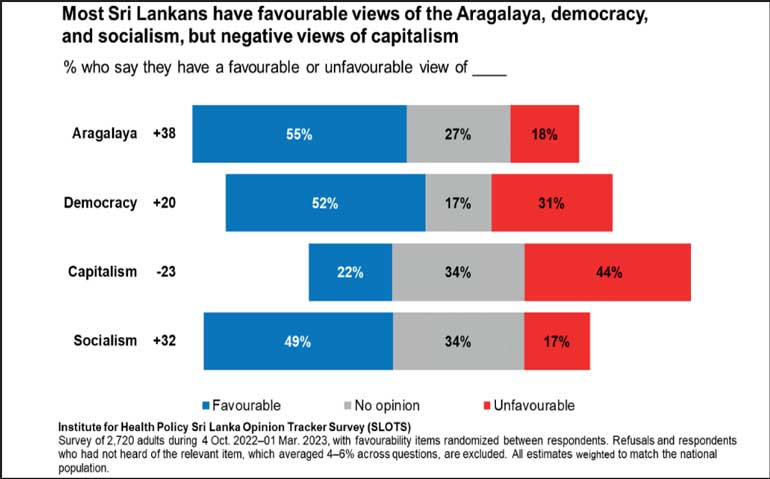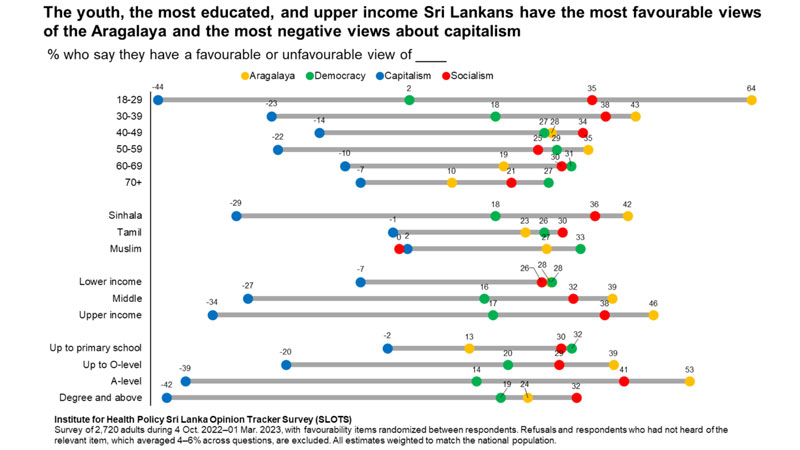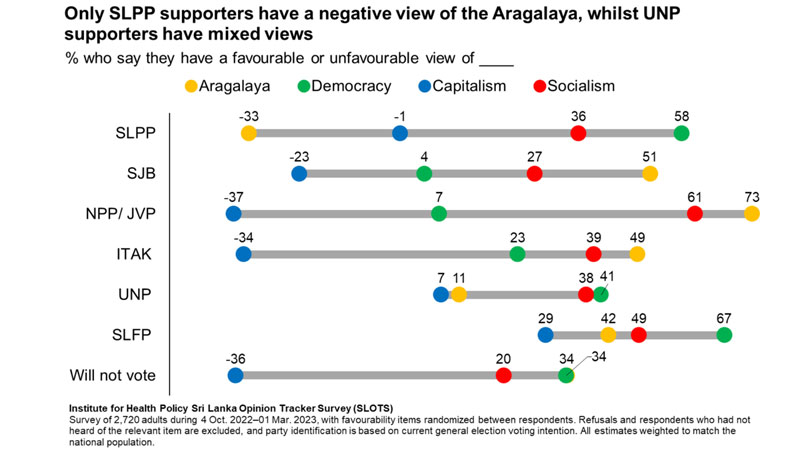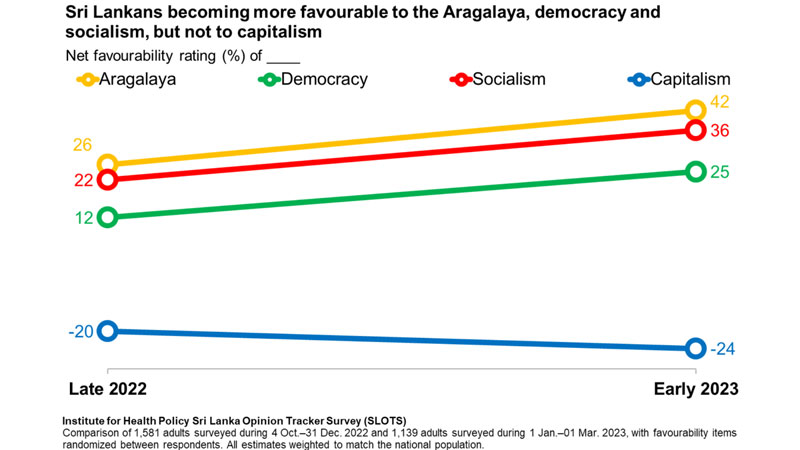Saturday Feb 21, 2026
Saturday Feb 21, 2026
Wednesday, 8 March 2023 01:04 - - {{hitsCtrl.values.hits}}

Support for the Aragalaya and democracy remains high and is increasing six months after the collapse of the Gotabaya Rajapaksa presidency, according to SLOTS polling from October 2022 to February 2023.
Six in ten Sri Lankans (55%) had a favourable view of the Aragalaya and only one in five Sri Lankans (18%) viewed it negatively. And from late-2022 to early-2023, net favourability of the Aragalaya increased 16 points from +26 to +42. Most Sri Lankans also have favourable views of democracy (+20) and socialism (+32), with favourability of both increasing 14 points from end-2022 to early-2023. In contrast, only one in five Sri Lankans (22%) have a positive view of capitalism, with net favourability showing a small decline during the same period.
SLOTS polling confirms public impressions that the youth were the most enthusiastic backers of the Aragalaya, with net favourability being highest (62%) in the youth (18–29 years), and favourability towards it declining with age, although net favourability is positive in all age groups. The youth also have far more negative views of capitalism (net favourability -44%) than older Sri Lankans (-17%).
In contrast, support for the Aragalaya is similar across ethnic groups and provinces, with SLOTS polling indicating that support for the Aragalaya is widespread and not confined to the Sinhala community or those living in the Western province or urban areas.
Perhaps surprisingly, more educated and better-off Sri Lankans are the most favourable towards the Aragalaya and have the most negative views of capitalism. Amongst Sri Lankans with a university education, capitalism has a negative favourability of -42%.
Professor Siri Hettige, one of the SLOTS investigators, commented that this may reflect the unprecedented nature of the current economic crisis, which has affected not only the poor, but also “hither to secure groups from privileged social and economic backgrounds.”
Many Sri Lankans also perceive that the dominant economic policy paradigm in the past three decades has been “capitalist”, and so the negative views of “capitalism” and the positive views of “socialism” may be driven by public perceptions that this dominant policy paradigm has fundamentally failed.
Major differences in views about the Aragalaya are largely politically partisan. Despite its widespread support, the Aragalaya has a net negative favourability of -33% amongst SLPP supporters, whilst UNP supporters are ambivalent with net favourability being only 11%. This probably reflects the fact that the Aragalaya was seen as opposed to the Gotabaya Rajapaksa administration, and the fact that most UNP supporters today are former SLPP voters.
Full report available at http://ihp.lk/publications/docs/SLOTSReport202304.pdf.


